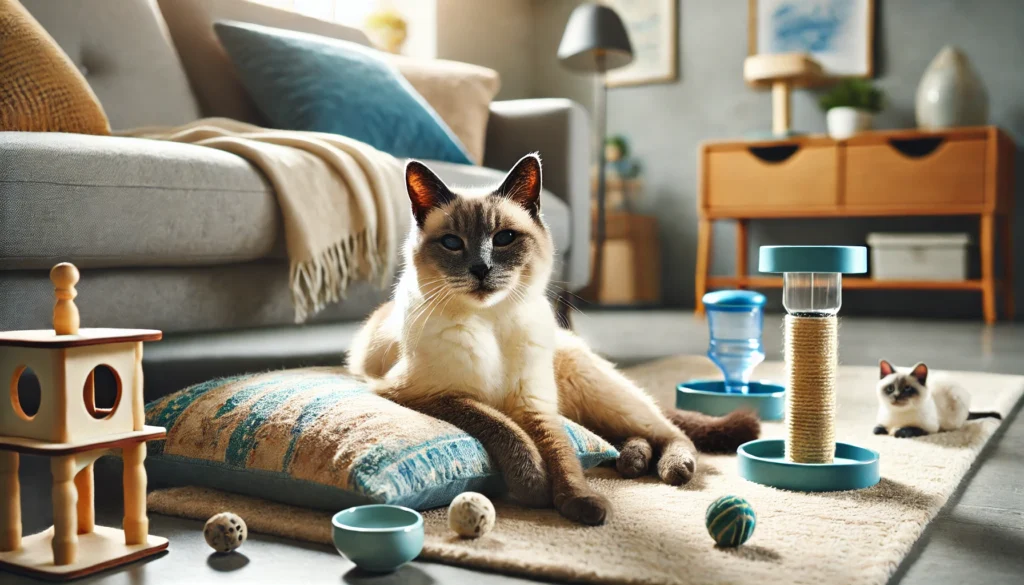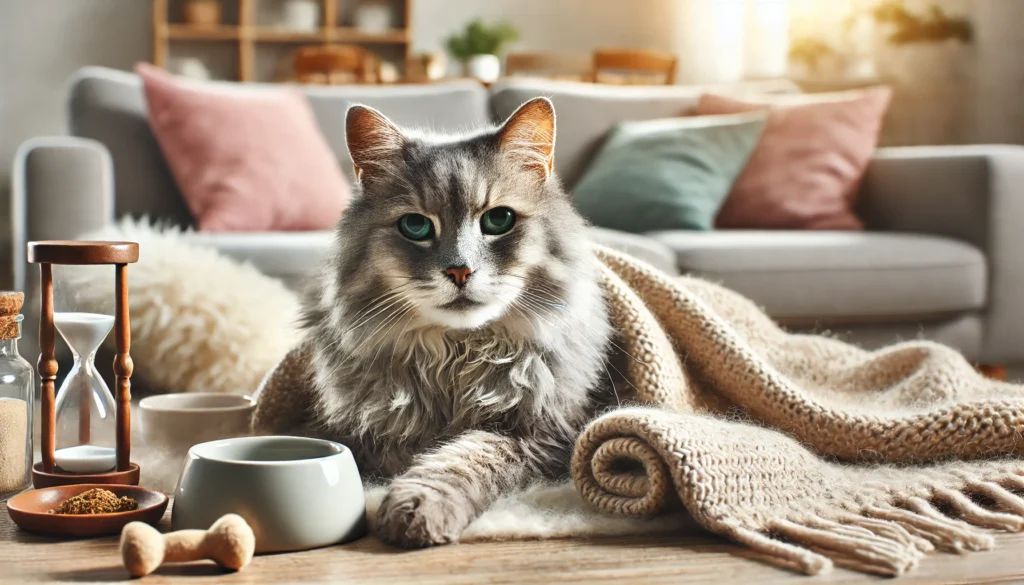Cats are wonderful companions who fill our lives with joy and love. However, as they age, their needs change, and it is essential that owners are prepared to provide the best possible care for their feline friends in their senior years.
If you're wondering how to care for your elderly cat, you're in the right place. Let's explore together all the nuances of the care your cat needs to ensure a long and healthy life.
How to Care for Senior Cats
When your cat enters old age, generally from the age of seven, several physiological and behavioral changes begin to occur. Understanding these changes is the first step to ensuring your cat has a comfortable and happy old age.
Proper Nutrition
Food is one of the most crucial aspects of an elderly cat's health. Older cats can develop digestive problems and therefore require a diet rich in specific nutrients that meet their new needs. Foods rich in high-quality protein, low in fat and easily digestible are ideal. Always consult a veterinarian for personalized recommendations on your cat's diet.
Regular Health Monitoring
As cats age, they are more likely to develop chronic conditions such as arthritis, diabetes, kidney disease and high blood pressure. Regular visits to the veterinarian are essential to detect and treat these conditions early. A complete examination, including blood and urine tests, should be done at least twice a year. Also, keep an eye out for any changes in your cat's behavior or appearance, such as weight loss, lethargy, or changes in appetite.
Comfortable and Safe Environment
Creating a safe and comfortable environment is vital to a senior cat's well-being. Make sure your home has quiet areas where he can rest undisturbed. Use soft, warm beds to relieve joint pain. Ramps or steps can help cats with arthritis reach high places, such as couches or beds. Accessories such as water fountains can encourage hydration, which is crucial for preventing kidney problems.
Physical and Mental Activity
Although older cats may not be as active as their younger counterparts, it is important to maintain an adequate level of physical exercise and mental stimulation. Interactive toys, short daily play sessions, and scratching posts help keep your cat mentally stimulated and physically active. Mental stimulation can prevent cognitive deterioration, while physical activity keeps muscles strong and joints healthy.
Dental Care
Dental problems are common in elderly cats and can significantly affect their quality of life. Brushing your cat's teeth regularly and offering foods that help keep their teeth clean are important practices. Additionally, regular dental appointments at the veterinarian are essential to prevent and treat dental disease.
Weight control
Maintaining a healthy weight is crucial to a senior cat's longevity and well-being. Obesity can exacerbate health problems like diabetes and arthritis. On the other hand, weight loss for no apparent reason can be a sign of illness. Monitoring your cat's weight and adjusting the diet as needed, under veterinary guidance, is an important part of care.
Hygiene and Appearance
Senior cats may need extra help with personal hygiene. Brushing your cat's fur regularly helps prevent knots and hairballs, as well as stimulating blood circulation. Occasional baths may be necessary, especially if the cat has difficulty grooming itself. Keeping your nails cut is also important to prevent them from becoming ingrown or causing discomfort.

Senior Cats: Understanding Specific Needs
Behavioral Changes
Elderly cats may experience significant behavioral changes. They may become more reclusive or, on the contrary, more needy for attention. Patience and understanding are essential during this phase. Providing a stable, predictable environment helps reduce your cat's stress and anxiety.
Adaptation to Old Age
Adapting to old age must be gradual and careful. Introducing new routines and adjustments to the environment slowly allows your cat to get used to it without feeling overwhelmed. Remember, adaptation is an ongoing process and requires constant observation and adjustments as needed.
Common Health Problems
The most common health problems in senior cats include chronic kidney disease, hypertension, hyperthyroidism and diabetes. Each of these conditions requires specific monitoring and appropriate treatment. Early detection through regular checkups can make a significant difference in your cat's quality of life.
Conclusion
Caring for an elderly cat requires dedication, patience and love. By understanding your feline friend's specific needs as they age, you can provide them with a long, healthy life.
Proper nutrition, regular health monitoring, a comfortable environment, physical and mental activity, dental care, weight control and hygiene are fundamental pillars for the well-being of elderly cats. With the right care, your cat can enjoy her golden years in comfort and joy.

Common questions
1 – How can I adapt my house for an elderly cat?
Adapting your home for a senior cat involves creating accessible resting areas, providing ramps to reach high places, and ensuring your cat has a quiet, safe place to rest.
2 – What is the best food for an elderly cat?
The best food for a senior cat is a diet rich in high-quality protein, low in fat and easily digestible. Always consult a veterinarian for specific recommendations.
3 – How do I know if my cat is developing a chronic illness?
Watch for changes in behavior, weight loss, lethargy and changes in appetite. Regular visits to the veterinarian are essential for detecting and treating chronic conditions early.
4 – Do elderly cats still need toys and activities?
Yes, senior cats need mental and physical stimulation. Interactive toys and short play sessions help keep your cat active and healthy.
5 – How can I help my elderly cat to clean itself?
Brushing your cat's fur regularly and giving it occasional baths can help with hygiene. Keeping nails trimmed is also important for your cat's comfort.
6 – What is the ideal frequency of veterinary visits for elderly cats?
Senior cats should visit the veterinarian at least twice a year for complete exams, including blood and urine tests, to detect and treat health conditions early.
